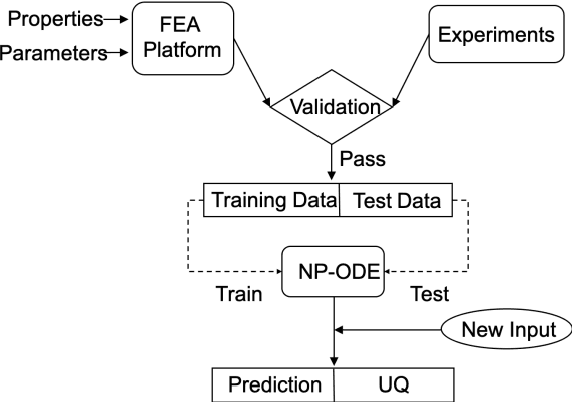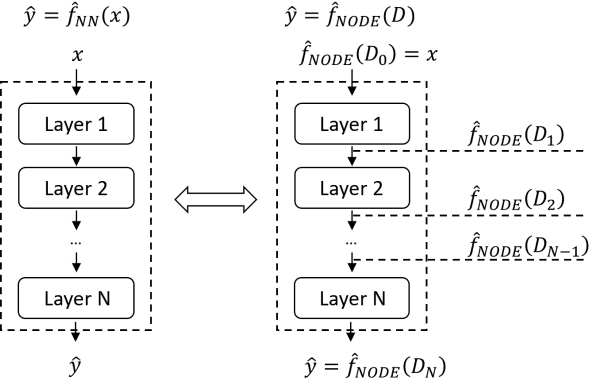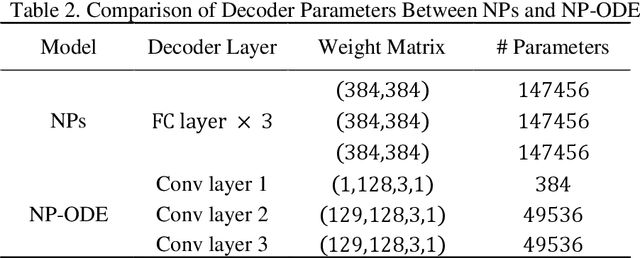NP-ODE: Neural Process Aided Ordinary Differential Equations for Uncertainty Quantification of Finite Element Analysis
Paper and Code
Dec 12, 2020



Finite element analysis (FEA) has been widely used to generate simulations of complex and nonlinear systems. Despite its strength and accuracy, the limitations of FEA can be summarized into two aspects: a) running high-fidelity FEA often requires significant computational cost and consumes a large amount of time; b) FEA is a deterministic method that is insufficient for uncertainty quantification (UQ) when modeling complex systems with various types of uncertainties. In this paper, a physics-informed data-driven surrogate model, named Neural Process Aided Ordinary Differential Equation (NP-ODE), is proposed to model the FEA simulations and capture both input and output uncertainties. To validate the advantages of the proposed NP-ODE, we conduct experiments on both the simulation data generated from a given ordinary differential equation and the data collected from a real FEA platform for tribocorrosion. The performances of the proposed NP-ODE and several benchmark methods are compared. The results show that the proposed NP-ODE outperforms benchmark methods. The NP-ODE method realizes the smallest predictive error as well as generates the most reasonable confidence interval having the best coverage on testing data points.
 Add to Chrome
Add to Chrome Add to Firefox
Add to Firefox Add to Edge
Add to Edge